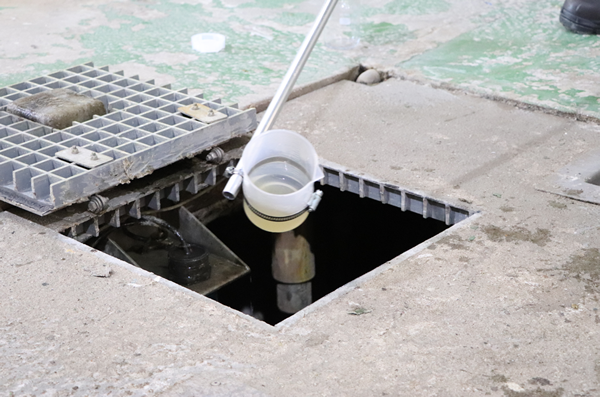SAMRC’s Wastewater Surveillance Team warns of rapidly rising concentrations of SARS-CoV-2 RNA in Wastewater in Rural Areas
 Cape Town | Scientists from the South African Medical Research Council’s (SAMRC) wastewater surveillance team have reported rapidly rising concentrations of SARS-CoV-2 RNA fragments in samples of wastewater collected from facilities in rural areas.
Cape Town | Scientists from the South African Medical Research Council’s (SAMRC) wastewater surveillance team have reported rapidly rising concentrations of SARS-CoV-2 RNA fragments in samples of wastewater collected from facilities in rural areas.
The concentrations of non-infectious SARS-CoV-2 RNA fragments are now elevated or rising rapidly in all of the rural wastewater treatment facilities being monitored by the SAMRC’s wastewater surveillance team. “This holds true for rural sites around the country, including in the Limpopo, Eastern Cape and Western Cape provinces,” said Dr Renée Street, a member of the team.
Whereas the SAMRC had first warned of rising SARS-CoV-2 RNA levels in wastewater associated with the fourth COVID-19 wave during the middle of November 2021, this had mostly been restricted to urban areas. “There has definitely been a lag in rural areas, and it is only over the last week or so that we have been observing rapid increases in SARS-CoV-2 RNA concentrations in our rural wastewater facilities,” said Prof Angela Mathee.
“The evidence in wastewater of an increase in the number of people in rural areas with symptomatic or asymptomatic cases of COVID-19 may be associated with a growing number of children and adults returning to rural areas following the closure of urban schools and universities, as well as with people travelling to rural areas for their summer holidays,” she added.
The SAMRC team said that at this stage they do not yet have the test results from their wastewater analyses to paint a complete picture of the dominant SARS-CoV-2 variants in rural areas. “We do know that the Delta variant remained dominant in some rural towns as of last week; however, given the extremely rapid pace at which the Omicron variant has gained dominance in urban areas, this could change in rural areas over a very short period,” said Dr Rabia Johnson, Deputy Director of the SAMRC’s Biomedical Research and Innovation Platform (BRIP).
In light of the rapidly rising levels of SARS-CoV-2 in rural wastewater facilities, Dr Mdhluli urged all South Africans, in both urban and rural areas, to become vaccinated or to obtain booster shots as a matter of urgency. He similarly appealed to all to adhere to non-pharmaceutical interventions, including diligently wearing masks and maintaining hand hygiene, and avoiding crowds and gatherings as much as possible. Where gatherings are unavoidable, he encouraged holding them outdoors or in very well-ventilated spaces.
NOTE TO THE EDITOR:
- The SAMRC wastewater surveillance team reminds all that they are monitoring wastewater for fragments of SARS-CoV-2 RNA in wastewater, and not the live, infectious virus.
- There is no evidence that COVID-19, no matter the variant, can be contracted from wastewater or water, including drinking water.
Further information on the SAMRC Wastewater Surveillance Programme may be obtained on their Dashboard at www.samrc.ac.za/wbe/.
Contact Details
Tendani Tsedu
Head of Corporate & Marketing Communication
Email: tendani.tsedu@mrc.ac.za

